Marginalized ‘nomadic’ community did not get the status of Scheduled Tribe, the plight of education, health and employment made life barren
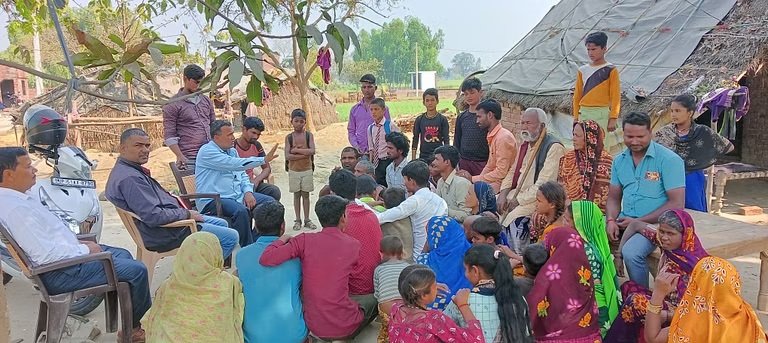
The daily living conditions of the Dalit Basti people who claim to belong to the nomadic community are pathetic. Social neglect, distance from education, economically weak and deprived of health services and government welfare schemes adversely affect the lives of the people of this society. The residents of the community demanded to be listed in the category of Scheduled Tribes.
Uttar Pradesh. Tursia village of Tursia Gram Panchayat, located in Bansi tehsil of Mithwal development block of Siddharthnagar district, where the residents of a village have been claiming for a long time that their forefathers are nomadic tribes who lived by begging in remote areas. . However, the people of this community currently have Scheduled Caste (SC) status. But the ground report of The Mooknayak shows that the hopes of the people here are that if they were to get the Scheduled Tribe (ST) status, today the youth of their community would have jobs, good education and opportunities for daily living. Had to have a healthy routine.
There are about 20 villages in the Siddharthnagar district connected to the Nepal border in the Terai region of the north-east of Uttar Pradesh where people of this type of community are living. Ghumantu, Mangata, Pasi, Mochi, Dharikar, Dhobi castes reside in Scheduled Castes in Bansi Tehsil area.
In Tursia village, Parshuram (42) was elected BDC member in the year 2007 among high school pass aged people in the community. After that he never got an official chance to represent these marginalized people. “There are a total of 7 villages in the Gram Panchayat. Every time I am a candidate for election (village head/BDC) for the rights and development of my people, but no one accepts us except my society,” said Parshuram. “Earlier our forefathers used to beg. He used to run his livelihood with that, and used to raise his children.
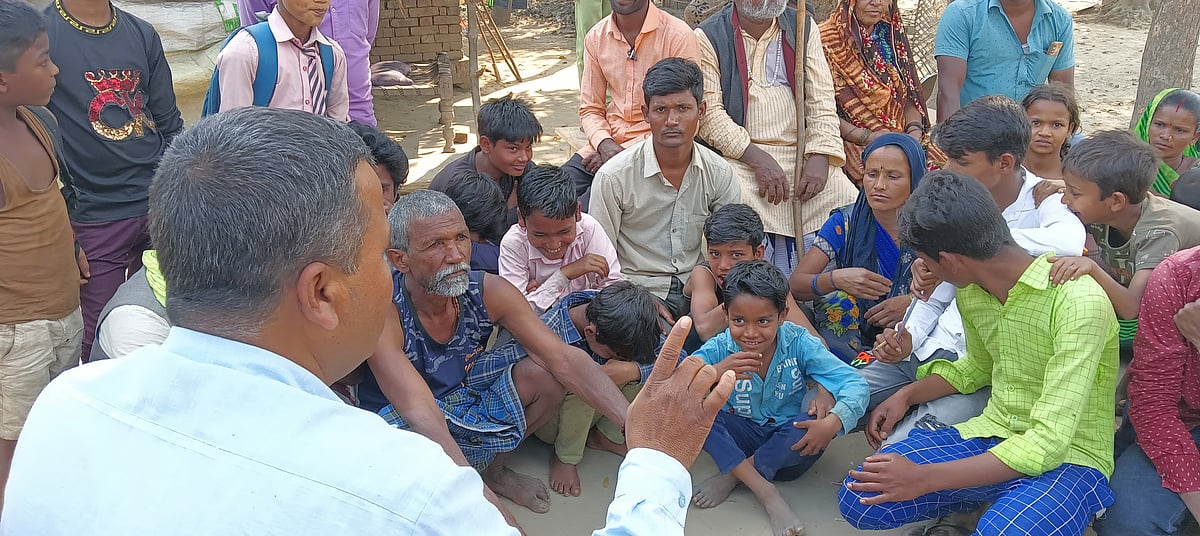
“Most of our people still live by begging, some work as laborers and some are engaged in buying and selling animals,” Parashuram told The Mooknayak .
Parshuram claims himself and the people of his community in his village to be ST (Scheduled Tribe). “Actually we are ST. We should keep the government in the tribe only. Because our people (ancestors) earlier used to live in forests, camping in tribes. But when we people started becoming a little aware, then our forefathers chose to remain permanent. He further says, “If we had remained in the tribal category, our children would have been in some small service even after getting less education. If this does not happen, we are sorry. We demand that the government should include us in ST, so that our future generations will get its benefit. Our people should have employment and we should not have to beg for food.
Due to being educated, in this village with a population of about 350 people, only the children of the new generation from Parshuram’s family are progressing towards education. His son Ajit Gautam (21) is doing internship at Community Health Center Tilauli after doing D-Pharma.
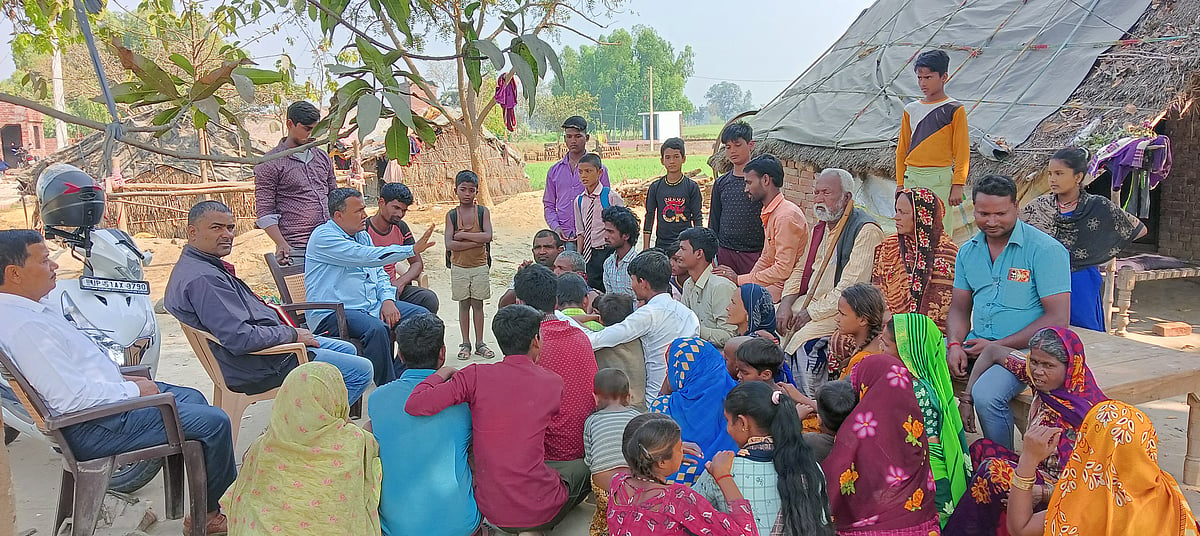
There are around 250 voters in Tursia village with 70 families. There are about 50 to 60 youths in the age group of 18-30 years in the village. Out of total youth, only 4 children are studying in high school and 4 children are studying in intermediate, rest of the youth have not received any education. There is a primary school located near the village, but little children of this village go to study here. Parshuram told that, “90 percent of the youth drink alcohol.”
When asked by The Mooknayak about the nature of the land where the community members are living, Parashuram said, “We have been living here for almost 70 years. Where we have settled, some of the lands here are in the name of our people, and some are of the government. If ever in the future the government removes us, then where will we go! We are poor people.
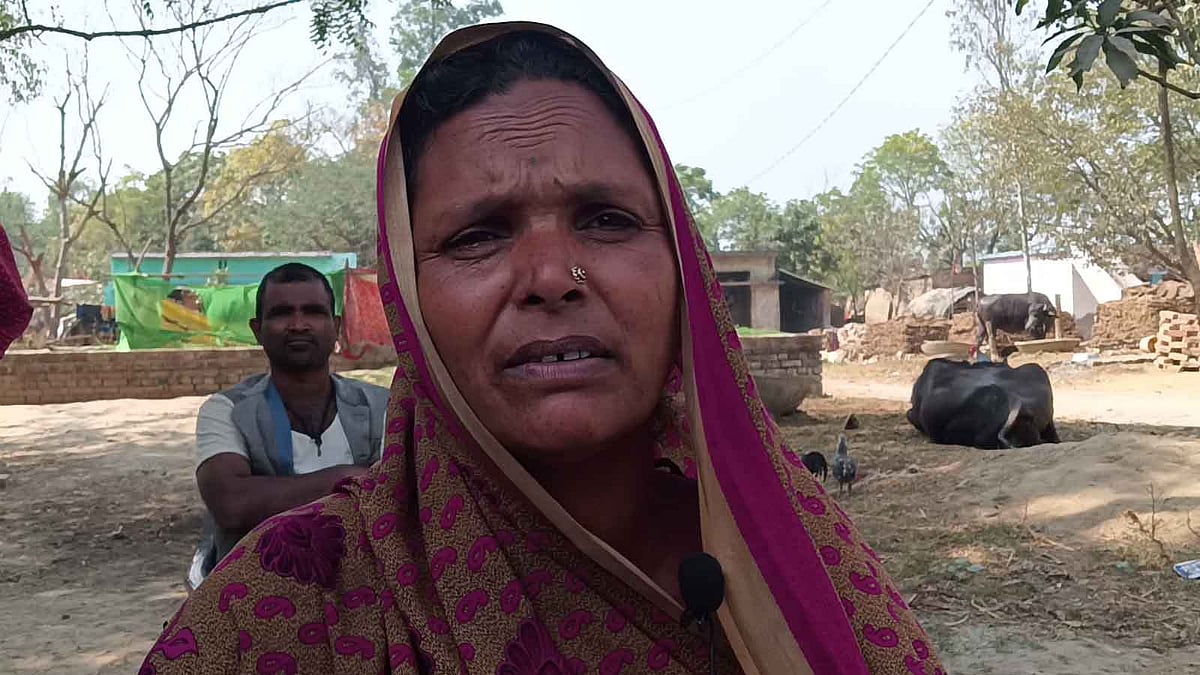
Parshuram’s wife tells that we have only 10 mandis (about half a bigha) of cultivable land. Government ration is available but only that does not fill the stomach. “The family (husband) earns its livelihood by doing business. We rear cows and buffaloes at home, and buy and sell them. The elders of the household go begging, and the boys do hard labour,” Sheela, Parashuram’s wife told The Mooknayak .
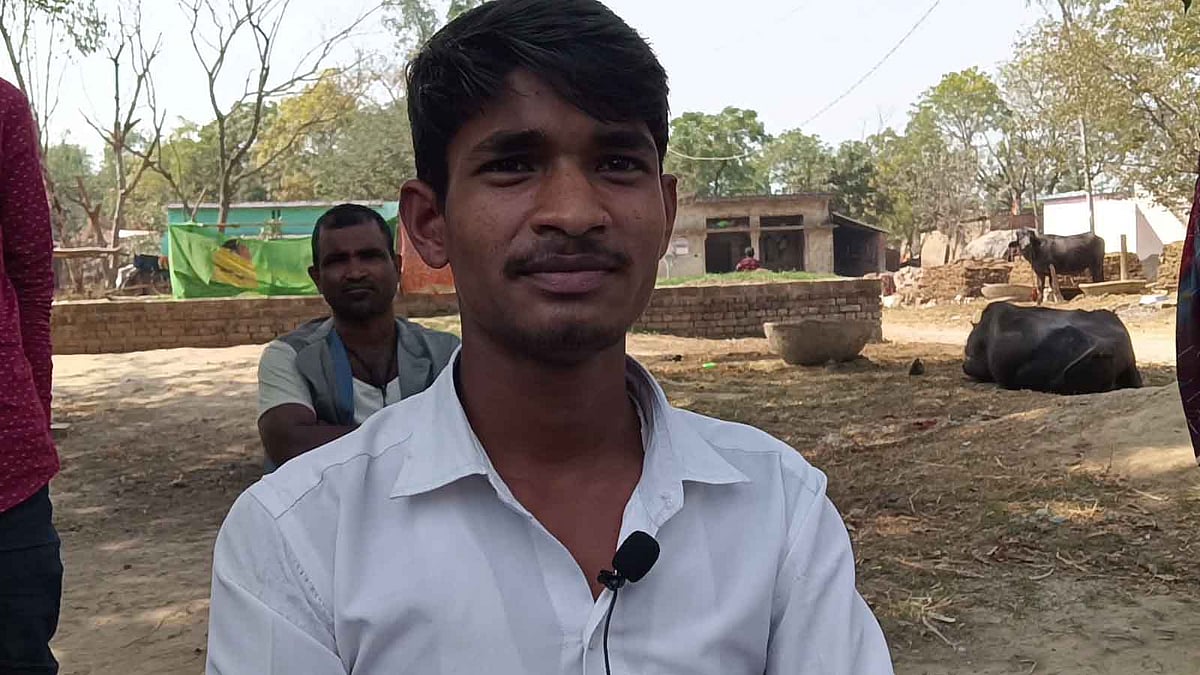
Vishal (16) of the same village, a high school student, studies hard and aspires to become a doctor. Hesitatingly Vishal told, “The mother takes care of the cattle at home and arranges for their fodder. When she gets free time, she goes begging. Two brothers live outside.
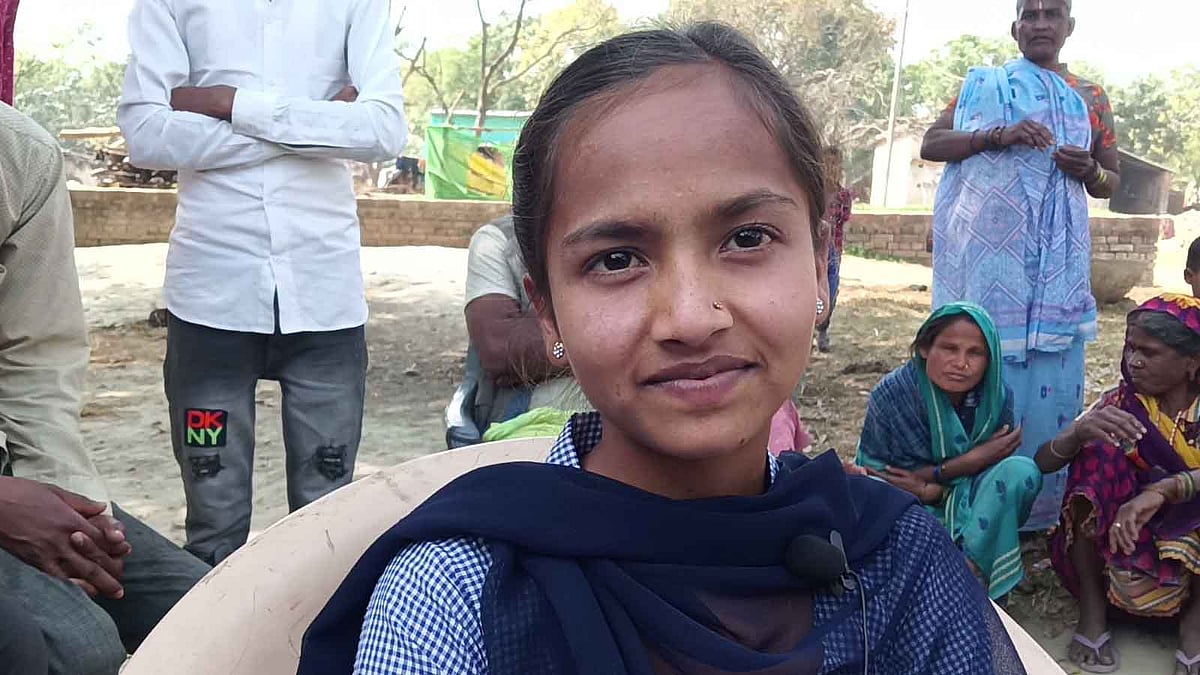
Like Vishal, Lakshmi (15) also aspires to become a doctor after studying. Lakshmi told that her father does the work of buying and selling buffaloes. Lakshmi shares an incident of discrimination with The Mooknayak , “It was Baba Saheb Ambedkar’s birthday. When the school friend who was of Brahmin caste was called to her house, she refused to come and started quarreling.
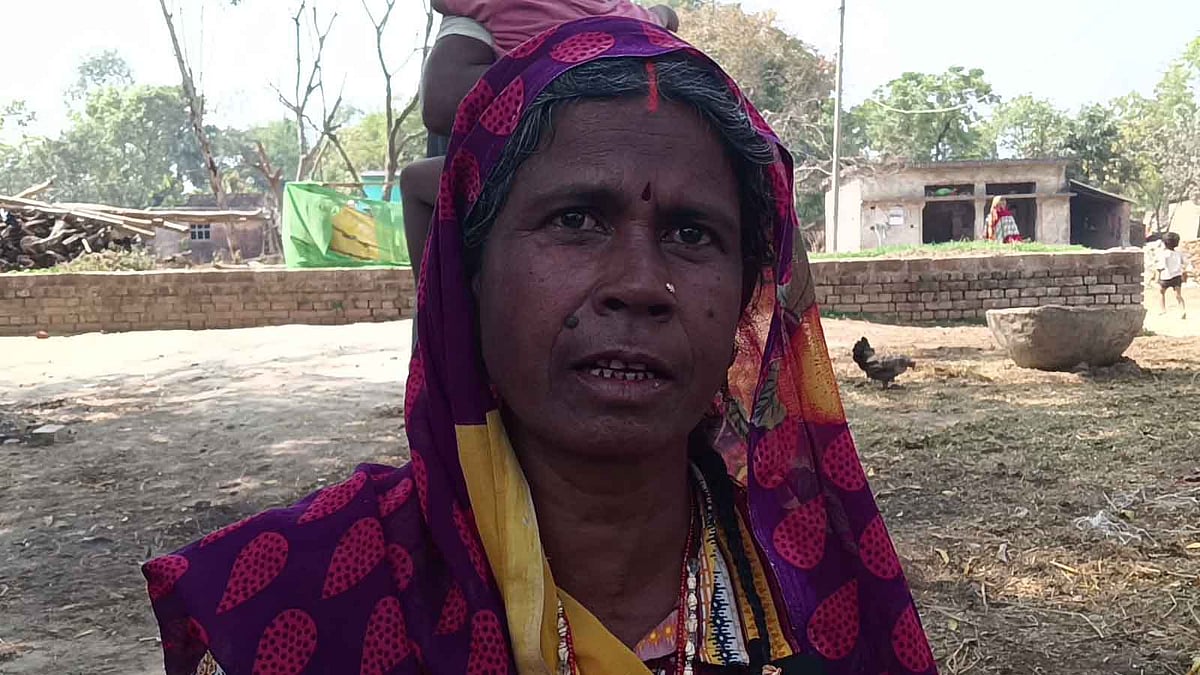
Kailashi (61) of the village does not get any kind of government facility or pension. When asked about MNREGA, she says that she is unaware of it. She says that “we do not have land for farming. The house is run by the husband who brings it after asking for it. Husbands go to ask for two kos – 4 kos.
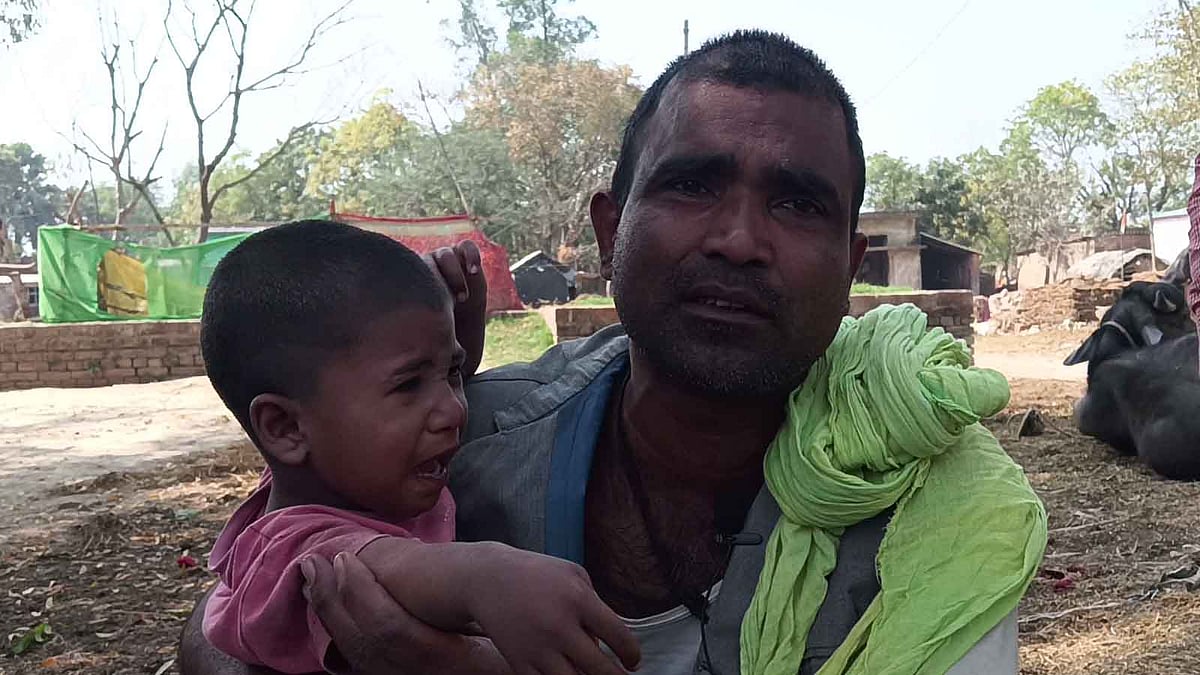
Indrajit Ram, who cleans his ears and feeds his family, presents a painful picture of his helplessness and poverty by holding his crying granddaughter (2). “My granddaughter is handicapped in both hands. Another granddaughter is one of her hands disabled. We are poor people, we eat by begging – we cannot get treatment for this. I don’t even have farming. We are dying of suffocation everyday. We don’t even have a house. There is no one to see or hear us. Indrajit’s son’s name is Umesh and daughter-in-law’s name is Suman.
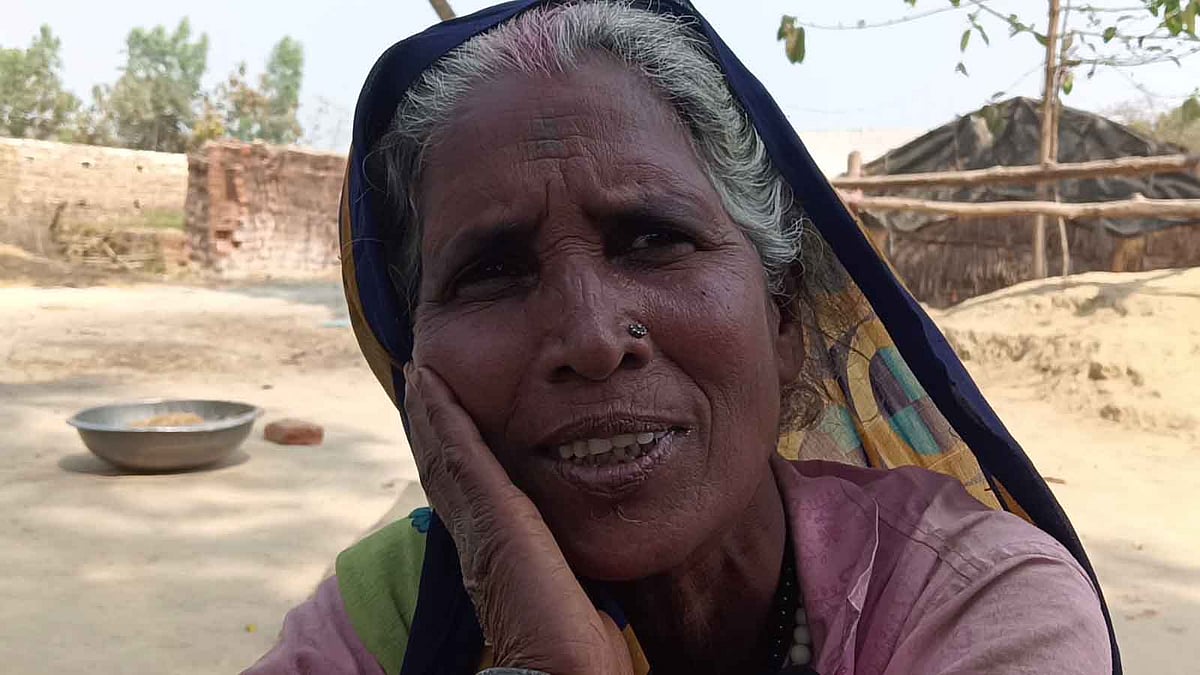
Prabhavati (60) has many people in her family, but no one cares for her. When her husband brings something after asking, then her stomach is full. Prabhavati does not know anything about old age pension, nor did she ever get the benefit of it. Prabhavati does not have any land for cultivation. She says, “There is no land to grow garlic.”
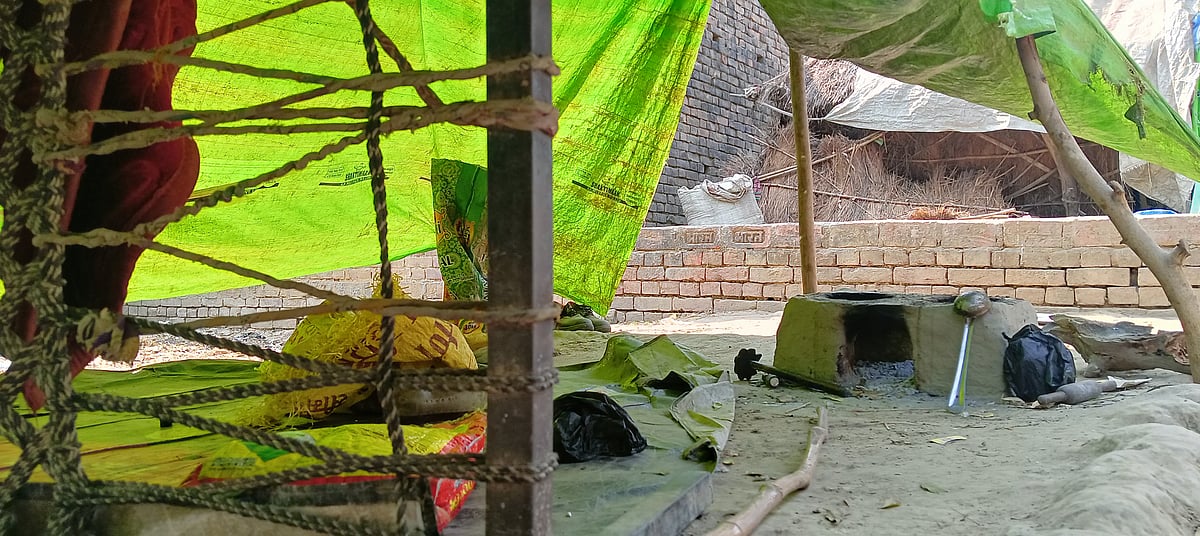
Apart from about 1 or two houses in Tursia village, no one has a gas connection. The whole village cooks food on a wood-fired earthen stove. Apart from a few people in the village, no one has got the benefit of the housing scheme. Apart from only one house, no family has a toilet. No woman in the village gets any kind of government pension. Because 90 percent of the people in the village do not have their own agricultural land, no one gets the benefit of the Pradhan Mantri Kisan Samman Nidhi.
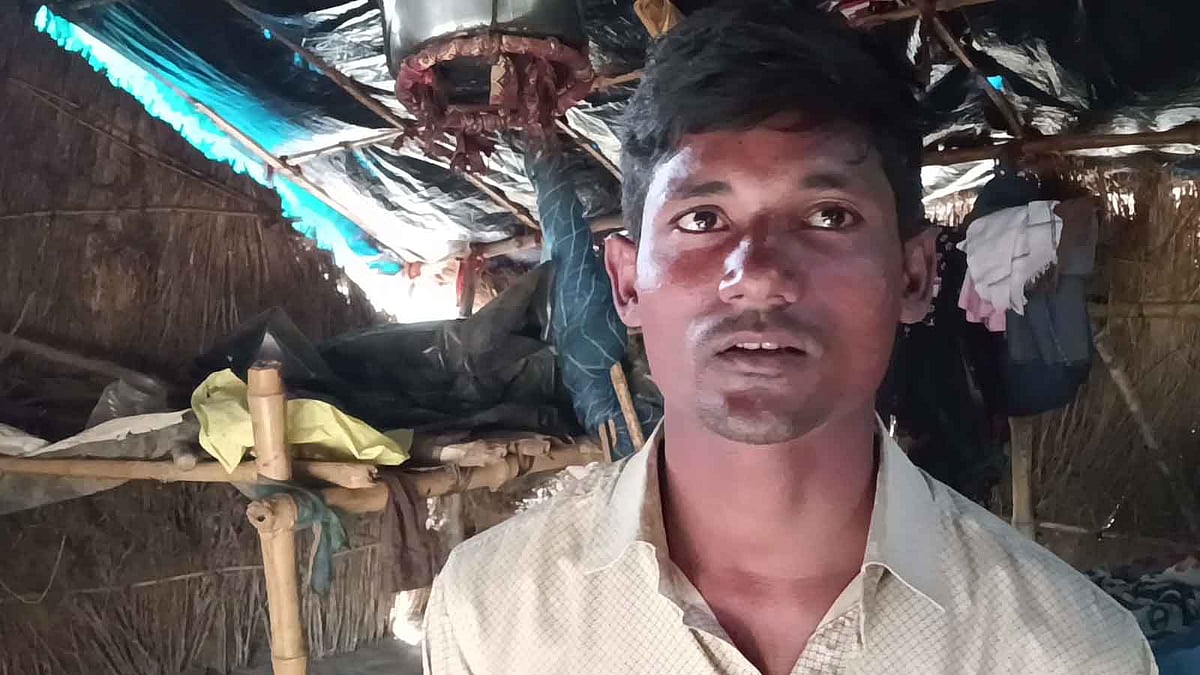
Ramesh (26) makes a living by weaving tin foil in a thatched hut. Ramesh explains, “When it rains, the rain water falls on us budur-budur (slowly continuously). I could not find accommodation. We are poor, in this we are spending our lives.
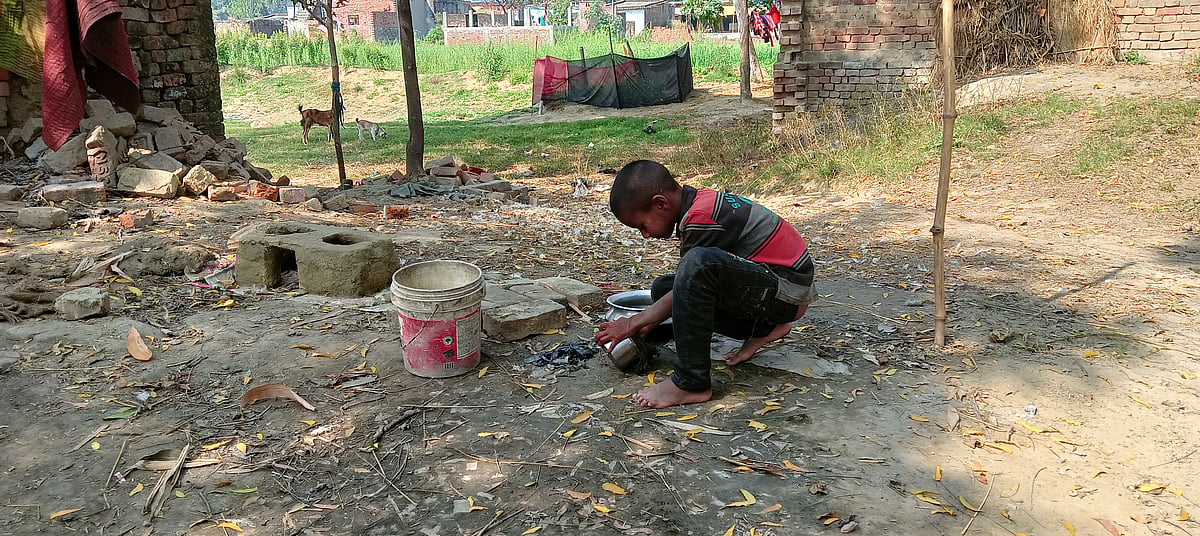
At the end, in the west of the village, in front of a thatched house, a three-year-old girl stands helplessly holding a tap, while her 10-year-old brother Vikas washes utensils with tiny hands at a distance Is. Vikas has another sister Roshni (15), who was not at home, went to beg so that arrangements could be made to feed them. He has no one else in this world. Roshni is the mother and father of her brother and sister, as both their parents left their three children alone forever due to illness. First father Lal Bahadur died, after 6 months mother Panguli also died.
Local journalist Ram Naresh Chaudhary (65), resident of Tursia Gram Panchayat, is Tehsil Correspondent of a daily newspaper. During the ground report in this village, he shared his experience and knowledge related to this community with the team of The Mooknayak . “Scheduled castes have a very important role in Siddharthnagar in the political context. Although Scheduled Tribes (ST) are very few here, because in the last Panchayat elections, many Gram Panchayats of Bansi Tehsil were left headless due to being of Scheduled Tribes, and the elections were not held. There was no candidate at all.”
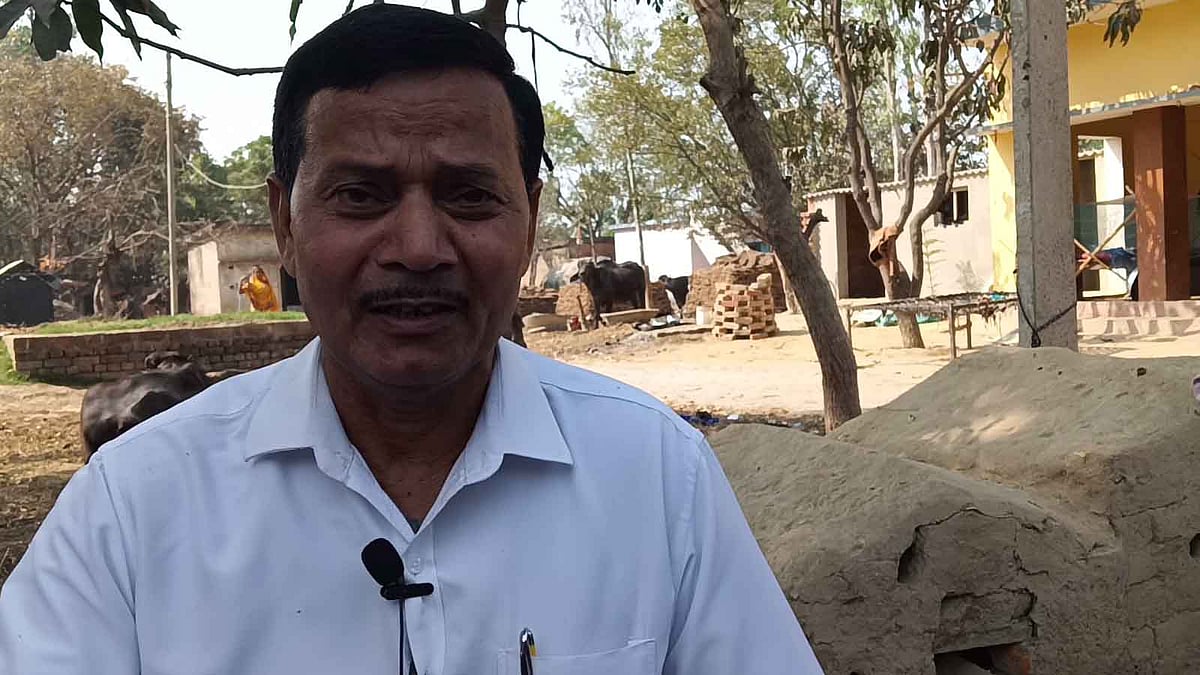
He said, when the elections come, the candidates come here and seek votes by telling the people (villagers of Tursia Scheduled Caste) that they are homogeneous of their party. But no improvement is done by anyone on their condition. “The population here has the eligibility of Scheduled Tribes, and they are also. But due to the lack of attention by the government due to certain reasons, these people are lying in the Scheduled Castes only. While they should be in the Scheduled Tribes.
“At the time of 1970, about three-four houses came and settled here. These were nomadic people, used to come here for a short time and then used to go for begging. These people did not stay at one place permanently at that time. Later, after consolidation in 1975, these people were allotted leased land by the government. Then they had only 2-4 houses. But today their number has increased with time, so many families have no land left for farming. Or those who have land, they have very little left. Because from generation to generation the land was being divided in their families. Chowdhary told, “Because they do not have land, they do not get the benefit of PM Samman Nidhi. Women do not get old age pension. Widow women here do not even get widow pension. Here they only get ration.”
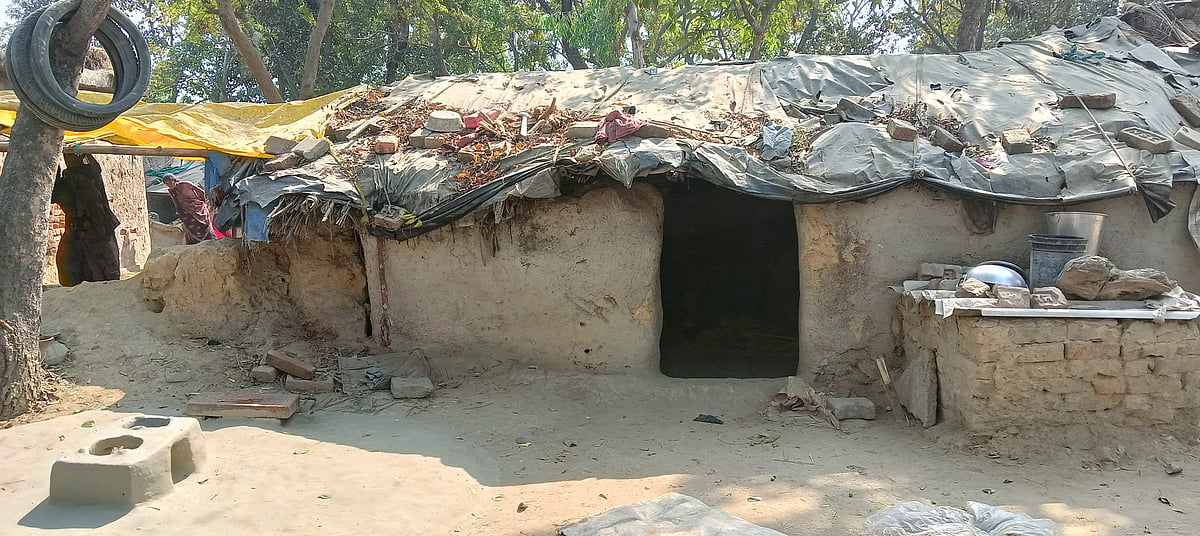
“The people here lack a lot of education. Because of which their small children and youth have indulged in all kinds of debauchery. Even the elderly are addicted to drugs. They spend most of their earning money on drinking alcohol. This has had a big adverse effect on their economic condition. All the social organizations here have a special need to conduct de-addiction awareness campaign among these people so that these people can live a healthy life by being drug-free.
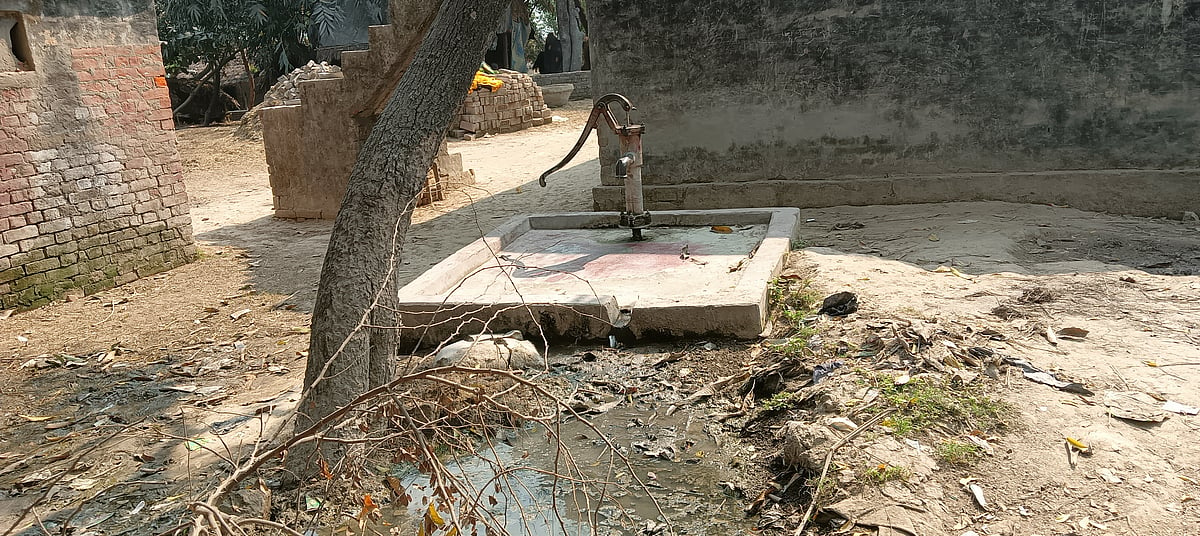
“Even if some people have got gas under the Ujjwala scheme in the village, people are not able to get it filled due to poverty. Roads have been built to reach this Dalit colony, but there are no drains in their colony, due to which the waste water coming out of their houses has no place to flow. Due to which their health is also affected. Long ago some of these people got houses like Indira Awas Yojana, but after that they have not got houses in proportion to their growing population. There is also political malice behind this. Due to which government schemes have not reached them,” Ram Naresh told The Mooknayak .
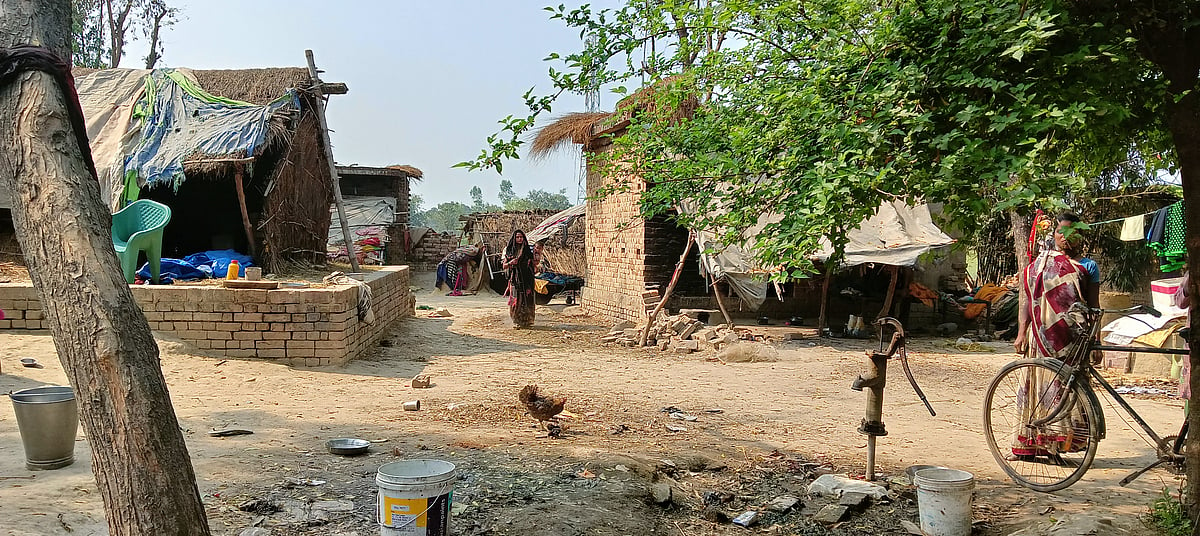
On the question of The Mooknayak about the unavailability of toilets in this settlement, Ram Naresh says, “Those who are advisors or controllers or engineers of government schemes, they plan and give away such a small amount given for the construction of toilets. , that it is beyond the understanding of the villagers. Rs 12,000 is not enough for toilets, yet the government is turning its back on itself, so what to say about it.”
nomadic groups in India
Nomads or nomads are known as a group of communities who move from one place to another for their livelihood. Some include salt merchants, some fortune tellers, magicians, Ayurvedic healers, jugglers, acrobats, storytellers, snake charmers, veterinarians, tattooers, millers, or basket makers.
Someanthropologistshas identified about 8 nomadic groups in India, numbering perhaps one million – about 1.2 percent of the country’s one billion-plus population. Aparna Rao and Michael Casimir estimate that nomads constitute about 7% of India’s population.
Nomadic communities in India can be broadly divided into three groups: hunter-gatherers, pastoralists and migratory or non-food producing groups. Of these, nomadic nomads are the most neglected and discriminated social group in India. Today, their livelihood is under threat due to drastic changes in transport, industries, production, entertainment and distribution systems.



